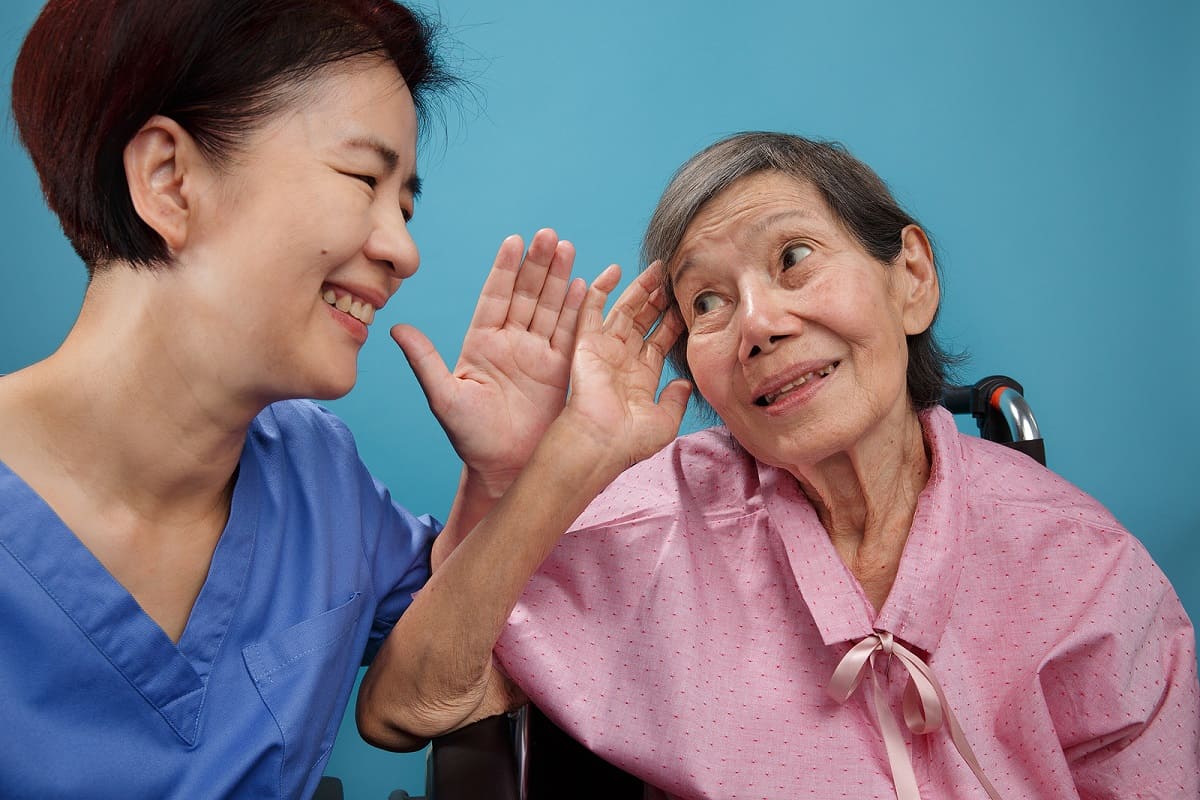0% financing available. Up to 3-year loss and damage guarantee.

Studies Show Higher Rates of Hearing Loss for People with Diabetes
- Eating for Better Hearing Health - April 14, 2023
- How a Healthy Diet Can Impact Hearing Health - March 16, 2023
- Avoid These Common Excuses for Not Treating Hearing Loss! - February 15, 2023
When we look at two distinct conditions in the body, there might not be a clear relationship between them. Any individual body has many competing dynamics happening at the same time, making it difficult to understand how one part affects another. However, when we aggregate to the social level, we can see trends that connect one condition to another. Although one person is not certain to develop a physical condition, we can see patterns between different conditions when we look at the entire population. Statistics reveal that the percentages of people with two conditions can be higher than either one in isolation. This relationship doesn’t necessarily show that one condition causes the other. It might be that there is an underlying condition causing both at the same time. Knowing that there is a relationship between two physical conditions can help us understand the risks any individual faces. Such is the case with hearing loss and diabetes. Although researchers do not yet understand the direct connection between these two conditions, they can look at the statistics in the total population and see that something connects them. Let’s take a look at two specific numbers that help us speculate about the relationship.
Diabetes, Pre-Diabetes, and Hearing Loss
Diabetes is a condition of elevated blood glucose levels that can lead to a wide range of other health problems. Those who have full-blown diabetes will need support to keep their blood glucose in check, and there are a number of different treatment regimens to monitor and balance blood sugar when it becomes too high or too low. Prior to a diagnosis of diabetes, some people have elevated blood glucose levels that qualify as “pre-diabetes.” These two conditions are a good way to understand how hearing loss is connected to blood glucose. Those who have pre-diabetes have a 30 percent higher risk of hearing loss. Those who have a diagnosis of diabetes have double the likelihood of hearing loss.
Interpreting the Statistics
What might connect these two conditions? Researchers use one set of measures to understand how these conditions are connected in the entire population, but a different research program is necessary to understand the bodily mechanisms that connect any two health concerns. Whereas a dataset does not require any medical expertise, understanding how one condition affects another requires a different team of researchers to explore the relationships in the body. Until that research takes place, specialists can speculate about the relationship based on what they know about each condition individually. When a person has elevated blood sugar levels, that bloodstream carries a reduced proportion of oxygen and other nutrients. That relative lack might have to do with the higher propensity for hearing loss. When the tiny, hairlike organelles of the inner ear, called stereocilia, are not receiving enough oxygen, they can become bent, broken, or otherwise damaged. Once damaged in this way, they do not regenerate on their own, making this type of hearing loss permanent. Diabetes might be contributing to this higher rate of hearing loss, but there also might be an underlying condition that intervenes between them. As researchers continue to explore the connection, we can use a hearing loss diagnosis as a prompt to explore other issues in the body. Although hearing loss does not cause diabetes, your primary care physician might use a diagnosis of hearing loss as a warning sign that other issues in the body might arise, including diabetes. If you find out that you have hearing loss, it is a good idea to communicate this finding with your primary care physician. That information might lead to a different course of diagnosis to explore the possibility of undiagnosed hearing issues, such as diabetes. If you have not had a hearing test, however, it is important to find out if your hearing ability is compromised. Getting a hearing test is easy, quick, and totally painless, and you might get the information you need to explore other potential issues in the body, as well. Why not contact our office to schedule your exam today? Once you get your hearing diagnosis, you can begin treatment as soon as possible.
